The cucumber, a member of the cucurbit family, is an annual plant found in various regions worldwide. There are 52 different cucumber species, with the garden cucumber being the most common. These plants have long creeping stems and oval leaves. When they bloom, their vibrant yellow flowers emerge.
Cucumbers are commonly oblong or cylindrical in shape, with a green color. They can have either a smooth or rough surface, and the flesh is typically green or whitish. The seeds are flat and egg-shaped.

There are many different varieties of cucumbers that can be grown in gardens. While botanically considered as berries due to their high water content (about 95%), cucumbers are commonly referred to as vegetables since that's how they're mainly used in culinary practices.
Cucumbers are a type of edible plant that can be enjoyed raw. Interestingly, even dogs can safely consume cucumbers! Offering fresh cucumber slices to your canine companion can serve as a healthy and refreshing snack. Not only will the hydrating properties of cucumbers provide your furry friend relief on hot days, but they also contain essential electrolytes for their well-being.
Cucumbers are a widely favored option for cultivation. Growing cucumbers is relatively easy, but it's important to provide optimal conditions for these plants. If you're interested in learning more, here are the basics of growing cucumbers.
The climbing cucumber variety is highly preferred for its fast growth and high yield. It not only requires proper care, but its vines also produce cleaner vegetables compared to those grown in the ground. Moreover, harvesting becomes more convenient because of their climbing nature.
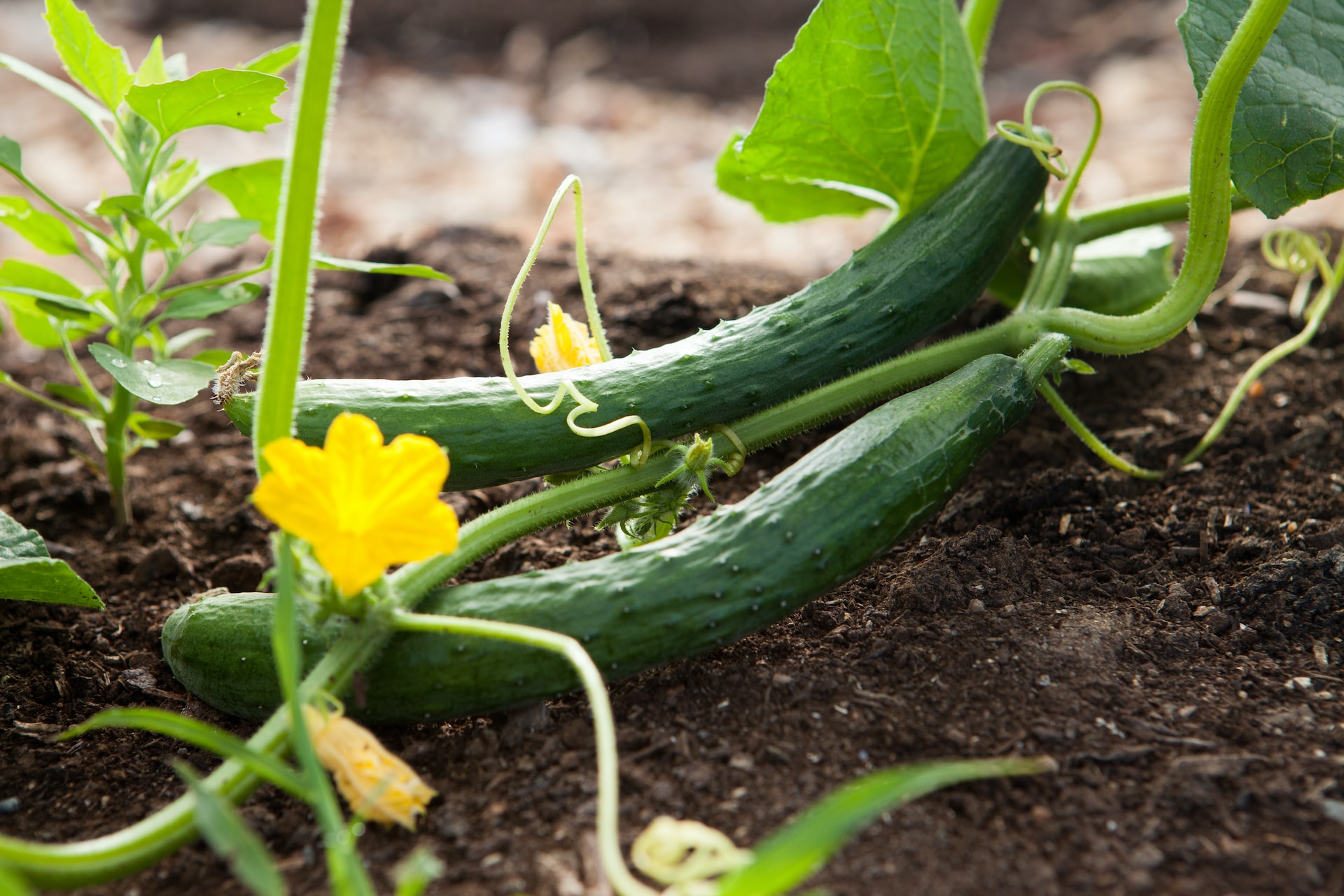
Time – Planting cucumber seeds requires careful timing. For optimal growth, it is recommended to start by planting the seeds indoors about three weeks before transplanting them outdoors. If you prefer to plant directly in the soil, it's best to wait at least a few weeks after the last frost before sowing. Cucumbers usually reach maturity approximately six weeks after planting.
Temperature – Cucumbers are sensitive to cold temperatures, so it's important to ensure the temperature is suitable. The ideal ground temperature for planting cucumber seeds is around 21ºC/70ºF, as this provides optimal conditions for germination. If you live in a colder climate, you may want to consider using specialized heating materials to keep the soil warm and maintain the necessary warmth for successful growth.
Space – Cucumbers need enough space to grow properly. Plant them in a row with about 4 feet of space between each plant. If you're growing vining varieties, make sure to provide support like trellises or fences for the plants to climb on.
Watering – To ensure healthy growth, cucumbers require regular watering. Failure to fulfill their water needs can have a detrimental effect on plant quality and productivity. It is advisable to water them in the morning, while being cautious not to wet the leaves excessively as this can heighten the risk of disease.
Soil – Cucumbers prefer warm, well-lit areas that are shielded from wind and harsh elements. They thrive in soil enriched with humus, which provides proper drainage. The pH level of the soil is also essential; opting for an alkaline substrate promotes healthy growth. While compost can be used as a fertilizer, it's important to use it sparingly and avoid overapplication.
Harvesting – When it comes to harvesting cucumbers, timing is key. It's important to start harvesting once the first fruits appear and continue regularly since cucumbers grow quickly. Leaving them on the vine for too long can result in a bitter taste, especially if they reach a large size. To determine the ideal size for mature cucumbers, refer to their specific type. Avoid letting cucumbers turn yellow before harvesting as this indicates over-ripeness. When picking, use cutting tools instead of tugging to avoid causing harm to the plants.
Challenges – Cucumbers are vulnerable to various diseases and insect infestations, particularly fungal infections caused by overwatering. To address these challenges and ensure the plants' survival, it is important to take proper protective measures.
Cucumbers offer a diverse range of options with their own distinct characteristics. Whether it's the color, size, flavor, or texture you're looking for, there's a cucumber out there to suit your preferences. Let's explore some of the most popular and intriguing varieties that you should consider trying:
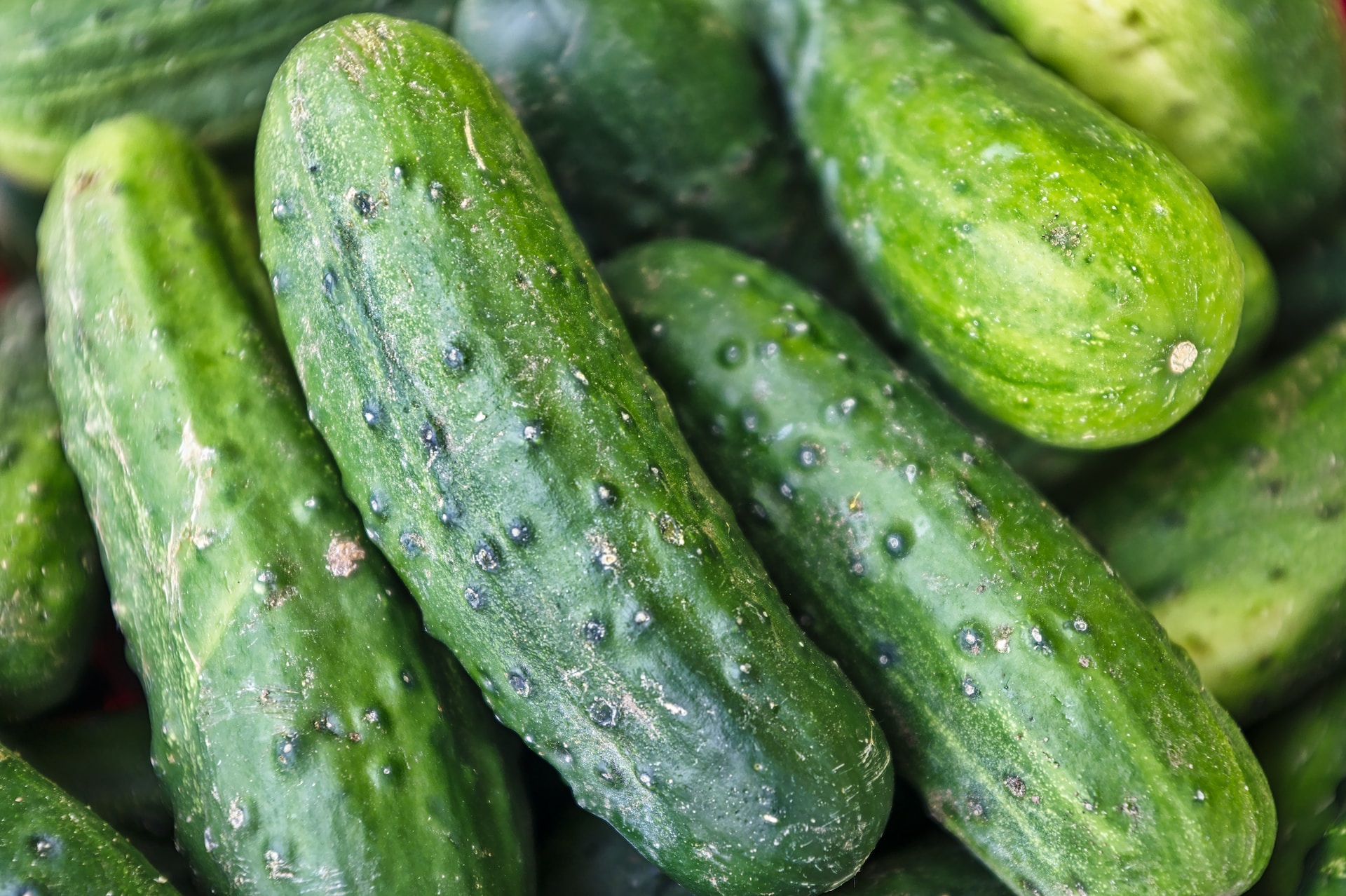
Garden cucumbers – Garden cucumbers are the most commonly cultivated variety. They have a longer length and smooth, slightly bitter skin. Their outer layer is vibrant green, contrasting with the light green flesh inside. These cucumbers are known for being juicy, and some varieties even have a delightful sweetness
English cucumbers – English cucumbers are a popular variety in Europe. They resemble garden cucumbers but have lighter skin and a smaller size. One notable feature is that they are seedless, making them easier to eat. Additionally, the skin of English cucumbers is thinner and has a milder flavor.
Kirby cucumbers – Kirby cucumbers are revered for their petite size and crisp skin. They come in a range of colors, from delicate yellow to vibrant green. While they are commonly used for pickling due to their popularity in that realm, they can also be savored raw. With a satisfying crunch, they provide a less juicy texture compared to garden cucumbers.
Gherkins – Gherkins are a distinct variety of cucumber that are commonly used for pickling. They are particularly popular in Europe and have a similar appearance to Kirby cucumbers. Their small size makes them perfect for fitting into jars.
Lemon cucumbers – Lemon cucumbers are a special variety known for their unique shape and color. They look like small watermelons but have a rounder form. When fully ripe, lemon cucumbers display a yellow spotted color. These cucumbers offer a sweet and delicate flavor that makes them appealing both for culinary purposes and as decorative elements.
The nutritional content of cucumbers may vary slightly depending on the type. Overall, cucumbers are a beneficial addition to a healthy diet. One distinct feature of cucumbers is their high water content, making them an excellent choice for those who struggle with staying hydrated. However, this also means that cucumbers may have lower nutrient levels than other vegetables. Nonetheless, they still provide essential nutrients for overall health.
Cucumber contains the following nutrients:
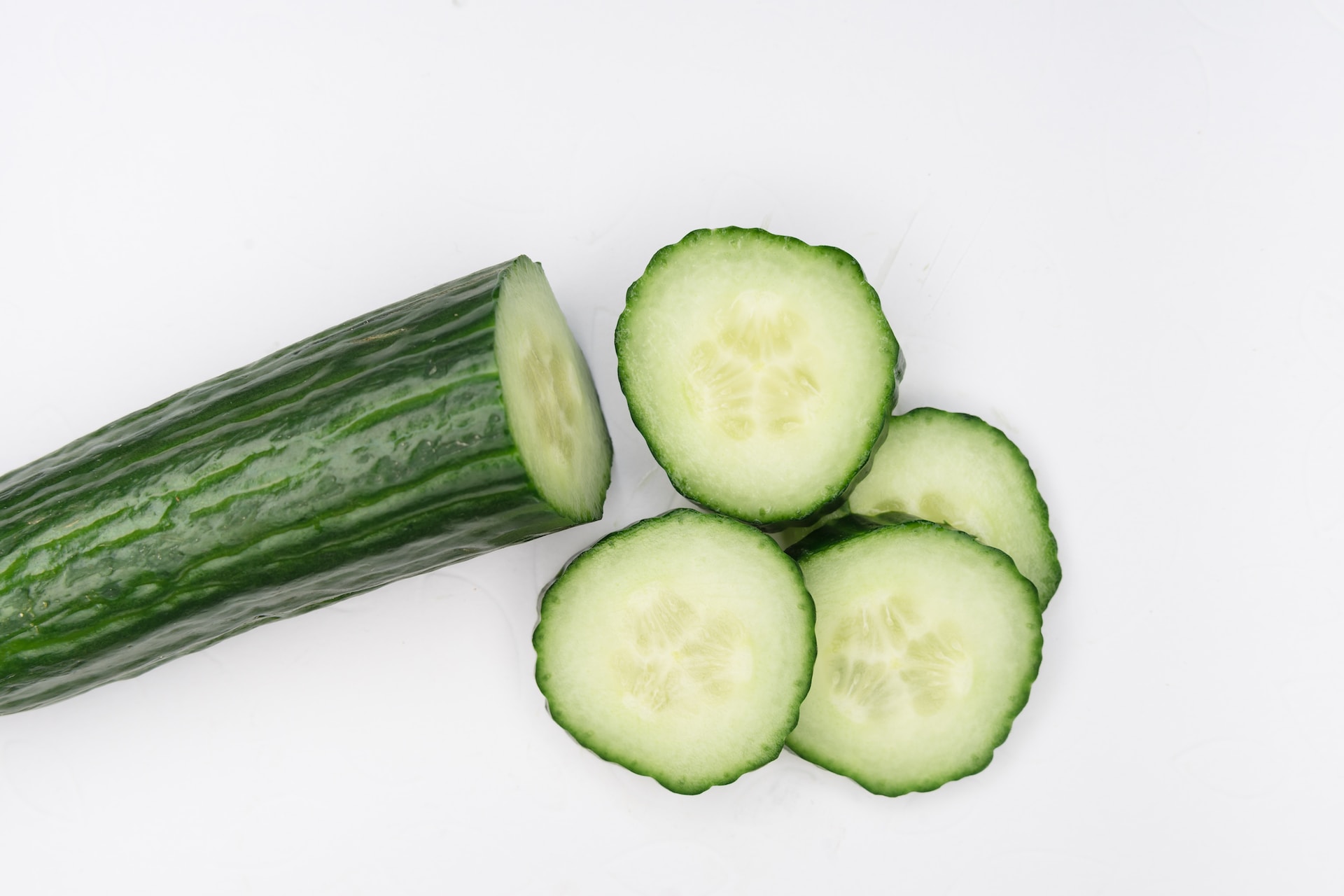
Vitamin A – Vitamin A is crucial for many physiological processes, especially for maintaining good eye function. Although cucumbers have some vitamin A, carrots and yams are richer sources of this important nutrient.
Vitamin B – Vitamin B plays a crucial role in supporting various bodily functions. Cucumbers contain small amounts of essential B vitamins such as riboflavin, thiamin, niacin, and vitamin B6. These vitamins are important for maintaining healthy skin, hair, and a properly functioning nervous system. Other good sources of B vitamins include parsley, peas, and beans.
Vitamin K – In addition to their refreshing taste, cucumbers are a valuable source of vitamin K. This essential nutrient is vital for blood clotting, maintaining bone health, and preventing the hardening of blood vessels. It's important not to overlook vitamin K as a deficiency can lead to undesirable consequences. If cucumbers aren't your thing, you can also find this beneficial nutrient in other green vegetables such as broccoli, spinach, and brussels sprouts.
Sodium – Sodium – Cucumbers also contain essential minerals like sodium. The element is essential for maintaining the body's water and electrolyte balance. Sodium plays a crucial role in ensuring proper muscle and nervous system function. Pickled cucumbers have exceptionally high levels of sodium.
Potassium – Cucumbers also provide some potassium, although the amount is relatively small. Potassium is an essential electrolyte that facilitates nerve function and helps regulate muscle contractions. If you are specifically seeking vegetables with higher potassium content, consider options such as potatoes, beetroot, and tomatoes.
Magnesium – Cucumbers contain a moderate amount of magnesium, an essential element that plays a role in various bodily functions. Maintaining adequate levels of magnesium is important as it has wide-ranging effects throughout the body. However, relying solely on cucumbers may not meet your daily intake requirement for magnesium. Legumes are a better source to fulfill this need.
Fibre – Cucumbers are not only a good source of vitamins and minerals, but they also provide a generous amount of fiber. Fiber, along with magnesium and potassium, contributes to lowering blood pressure and maintaining a healthy digestive system.
Chlorophyll – Cucumbers are known for their vibrant green color, which is due to the presence of chlorophyll, an organic compound. Chlorophyll offers various health benefits such as boosting the immune system and contributing to the body's defense against viruses and bacteria. By strengthening our immune defenses, chlorophyll helps in preventing diseases and infections.
Flavonoids – Cucumbers also contain flavonoids, which are beneficial compounds found in plants. Flavonoids have numerous health benefits, including anti-cancer, anti-inflammatory, and anti-allergic effects. They also act as diuretics and support liver health.
Cucurbitacin – Cucumbers are not only tasty and healthy, but they also contain important amino acids like cucurbitacin. Scientific studies have revealed that cucurbitacin offers several medicinal properties. In addition to cucumbers, pumpkin seeds also contain this beneficial compound. Cucurbitacin promotes healthy digestion and offers protection for the liver. Moreover, it exhibits anticancer, antifungal, and antibacterial effects.
Coffee acid – Cucumber has antioxidant and anti-inflammatory properties, making it anti-diabetic, cardioprotective, and anticancer. Coffee acid is a phenolic acid categorized as a polyphenol. It is found in many vegetables and fruits, and coffee is the primary source of the human diet.
Cucumbers offer numerous health benefits, making them an excellent addition to a balanced diet. Not only are they low in calories, but they also provide a refreshing and hydrating option for those looking to manage their weight. Enjoying cucumbers can help satisfy hunger and boost energy levels without the worry of potential weight gain.
It's important to mention that pickled cucumbers actually have fewer calories than fresh cucumbers. This is because the sugar in pickles is converted into lactic acid during fermentation. However, be cautious of cucumbers in sweet or vinegary brines, as these can have higher calorie content.
Incorporating cucumbers into your diet can provide several health benefits. While it's crucial to maintain a diverse and well-rounded eating plan that caters to individual needs, knowing the unique characteristics of this vegetable can be beneficial. If you appreciate the refreshing and juicy flavor of cucumbers, here are some of their health properties.
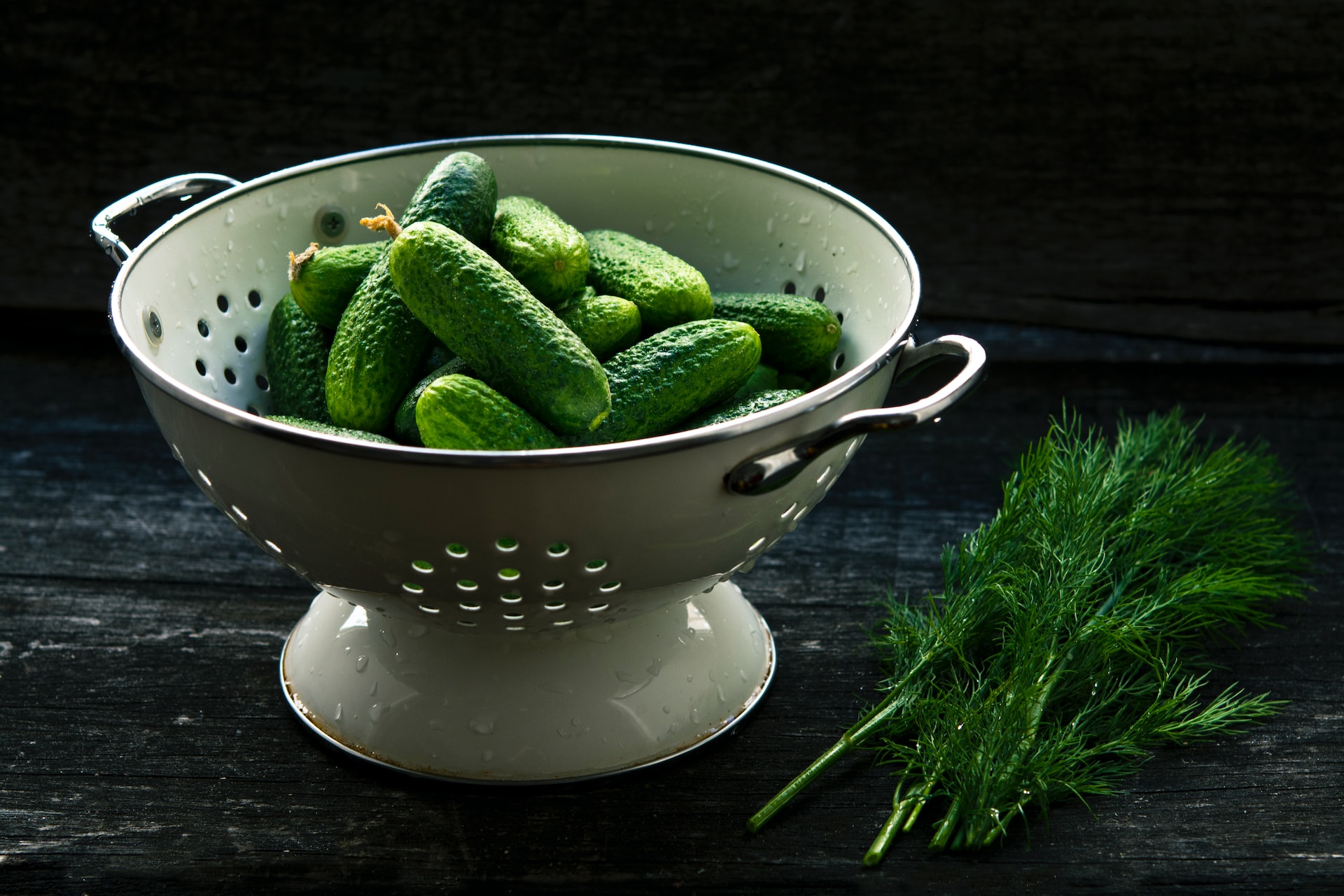
Diuretic effect – Cucumbers have a high water content, making them a natural diuretic that helps eliminate excess fluids from the body. They can also assist in burning accumulated fat and reducing swelling. In addition, cucumbers promote detoxification by helping cleanse the body of toxins.
Skin strengthening – Cucumbers have long been used in the cosmetic industry for their refreshing properties. The peel of a cucumber contains caffeic acid and ascorbic acid, which can promote healthy skin and provide relief from irritation and inflammation. As a result, cucumber is often directly applied to the skin and is commonly used in spa salons and eye treatments.
Regulation of blood pressure – Cucumbers can also aid in regulating blood pressure due to their fiber, potassium, and magnesium content. This makes them a beneficial addition to the diet for individuals with hypertension. It's worth mentioning that pickled cucumbers should be eaten in moderation due to their high sodium content. Choosing fresh garden cucumbers is a healthier alternative.
Anticancer action – Cucumbers offer a multitude of health benefits, thanks to their nutrient content. One noteworthy advantage is their potential ability to combat cancer. Cucurbitacin, a compound found in cucumbers, has been shown to inhibit the growth of cancer cells linked with prostate, pancreatic, and breast cancers. Moreover, the presence of flavonoids in cucumbers enhances their anticancer properties even further.
Anti-inflammatory action – Cucumbers contain phytonutrients like flavonoids, lignans, and triterpenes that have been found to possess anti-inflammatory properties. These compounds can support the immune system and help protect the body against infections when cucumbers are included in a regular diet.
Digestive support – Cucumbers not only offer a refreshing taste but also provide digestive benefits. They can help prevent heartburn and alleviate gastrointestinal reflux. Additionally, cucumbers support the cleansing of intestinal deposits and contribute to the deacidification of our body due to their alkaline-forming properties. With their high water and fiber content, cucumbers can also help alleviate constipation.
Aids in weight loss – Cucumbers can be a useful dietary addition for weight loss due to their low calorie content. They provide energy while promoting fat burning. Additionally, cucumbers have a low glycemic index, making them suitable for individuals with diabetes. Research indicates that incorporating cucumbers into one's diet can help lower blood sugar.
If you're interested in the health benefits of cucumbers, incorporating them into your diet is a great idea. If you're looking for inspiration, we have some great cucumber recipes to share. Cucumbers are incredibly versatile vegetables that can be enjoyed in countless ways. Plus, their diverse range of varieties means there's a flavor profile to suit every taste preference.
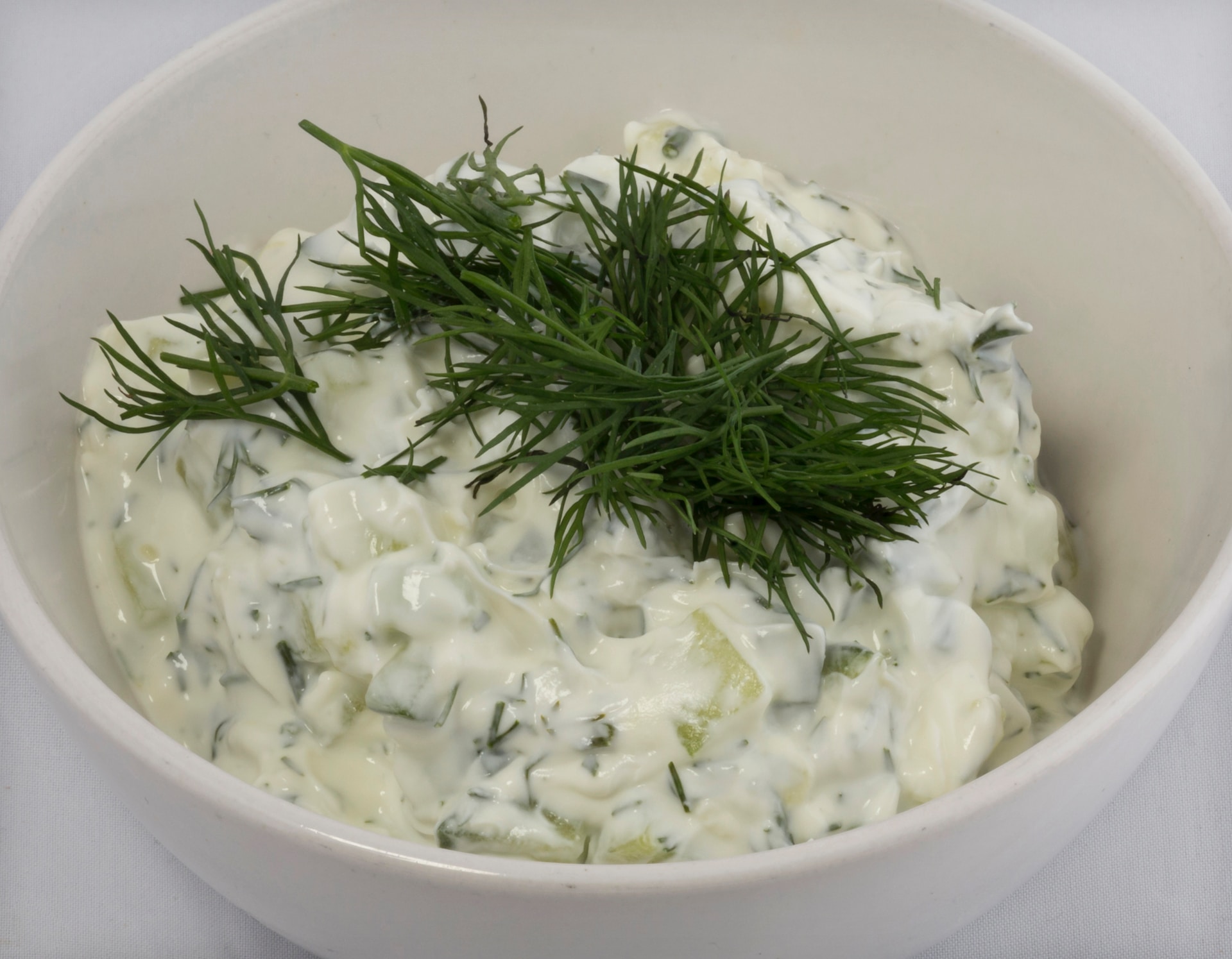
Tzatziki is a beloved Greek sauce that is commonly served as the region's most popular appetizer. It is often used to complement meats, vegetables, and sandwiches. Embrace the flavors of this unique tradition and transport yourself to the Mediterranean, where ingredients like cucumbers were frequently incorporated into dishes.
Start by peeling the washed cucumbers. You can then either grate them on a coarse grater or finely dice them, depending on your preference. If you have cucumbers with seeds, it's recommended to remove the seeds. After that, add some salt and set aside in a colander or filter for approximately 15 minutes to eliminate excess water. Next, peel and finely chop some garlic. Drain the cucumbers and combine them with yogurt. Finally, add oil and garlic to taste and season accordingly.

Beat the heat this summer with a refreshing drink like cucumber lemonade. This thirst-quenching beverage not only keeps you hydrated but also offers the cooling benefits of cucumber. Indulge in the delightful taste while staying refreshed all day long.
For a refreshing cucumber drink, start by adding sugar to a glass of water. Peel and cut a cucumber into smaller pieces, then blend it with the sweetened water until smooth. To remove any lumps, strain the mixture through a sieve. Add the juice of 2 lemons to the cucumber mixture and stir well. Refrigerate the mixture until chilled. When ready to serve, garnish with fresh mint leaves and cucumber slices for added flavor. Cheers!